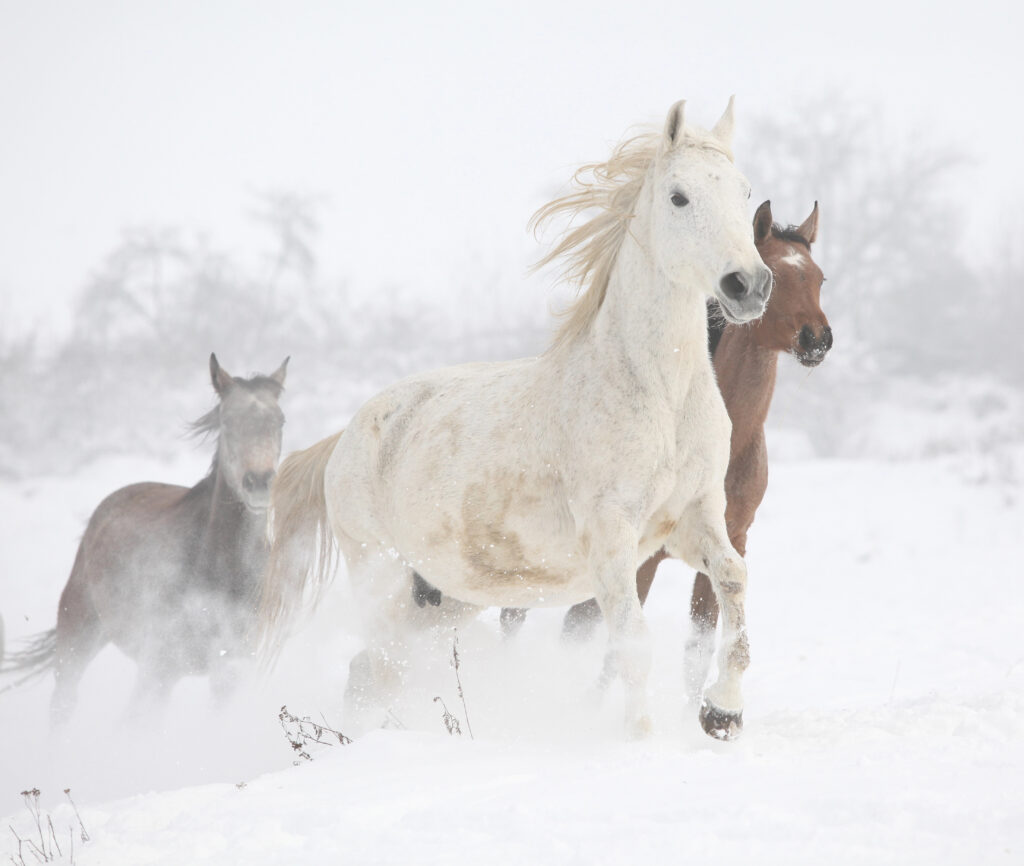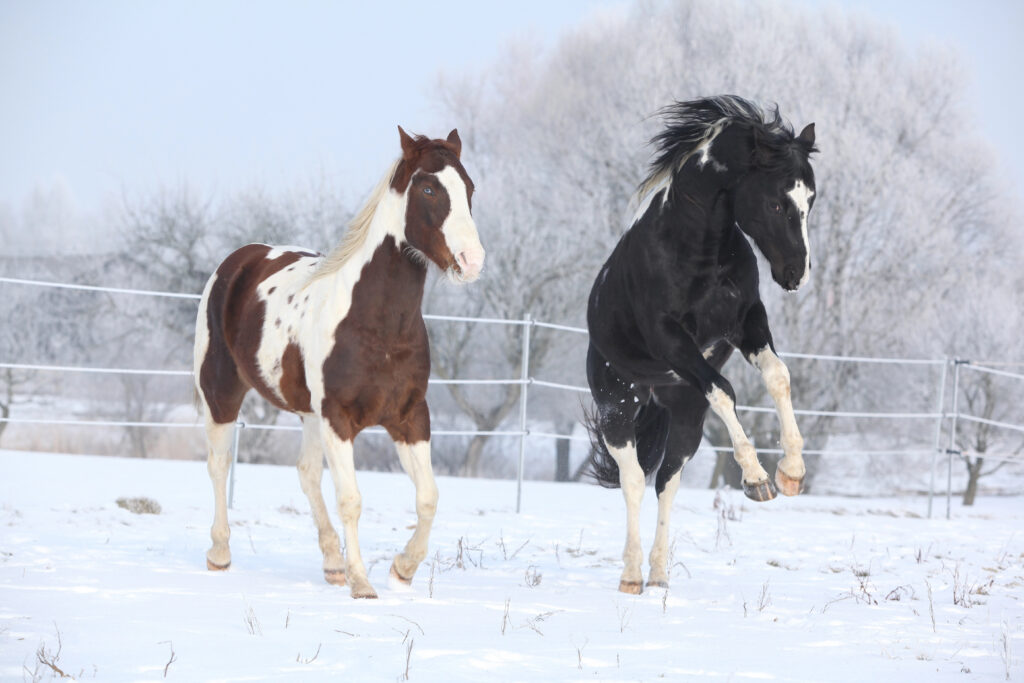We’re all too familiar with how frisky horses get when it’s cold out. They start snorting and prancing around, and while it’s delightful to see them play, you may dread having to work them with that extra energy. Why do horses get frisky when it’s cold, though? In a season where many animals go into hibernation, it may seem counterintuitive that horses seem to get an energy burst with the changing seasons.
Here are a few reasons why horses get frisky when it’s cold.

Reasons Why Horses Get Frisky When It’s Cold
There are a variety of reasons why horses get frisky when it’s cold. Why your horse gets frisky could be one of them or a combination of a few. Some of the most common reasons why horses get frisky when it’s cold are as follows below.
- Reduced turnout. Horses are often stalled more in the colder months due to shorter days, mud, ice, and snow. This means that when they do get turned out, they have a lot of pent-up energy to burn off, causing them to get frisky.
- Having fun. Just like humans, some horses love to play in the snow. You’ll likely know if your horse loves the snow, with how they light up when there’s fresh powder on the ground.
- Weather changes. Changes in the weather can make horses more reactive.
- Less exercise. Many horse owners choose to give their horses the winter season off – but the reduced exercise means that your horse has to burn its energy in other ways, such as by getting frisky when turned out.
- Feeding simple carbohydrates. You may feed your horse more hay or grain to prevent winter weight loss. However, diets high in simple carbohydrates can lead to “sugar rushes”.
As such, you want to ensure that you’re still exercising your horse, turning them out, and feeding an energy-dense diet to help your horse stay calmer throughout the winter months.
How Do Horses Stay Warm?
Getting frisky is not how horses stay warm in the winter. Rather, the opposite is true. In order to stay warm, they conserve energy, huddle close to other horses, and find shelter. Some horses are better suited to cold weather than others. The raging blanket debate is one such evidence of this, as some horses do need blankets in order to stay warm either from age or another reason, while others can grow a nice, thick winter coat that keeps them nice and warm all winter long.
Have you ever seen horses covered in a blanket of snow and worried that they’re freezing? You may be surprised to know that this actually means that their natural winter coat is doing its job. It means that their coat is insulating them and preventing loss of body heat. Blanketing may keep a horse’s coat short and sleek, but you also need to be very on top of using the appropriate blankets for the weather in order to keep your horse warm and prevent problems like them getting cold or overheating.
If you have concerns about your horse’s ability to stay warm and you don’t know whether to use blankets or the appropriate blankets to use, consult with your vet. Your vet will be able to provide you with appropriate advice for your horse’s unique needs.

Keep Your Horses Hydrated All Winter
Bar Bar A is here to help you keep your horses happy and healthy all winter long with our non-electric automatic horse waterers. These enable your horses to drink fresh, clean, temperate water on demand, without you having to worry about breaking the ice or filling buckets. To learn more about our non-electric automatic waterers and how to select the right model for your climate and needs, please don’t hesitate to contact us today. We look forward to hearing from you.
